Clause 3, Article 3 of Circular 19/2016/TT-NHNN stipulates that a credit card is a card that allows the cardholder to make card transactions within the credit limit granted according to the agreement with the card issuer.
Simply put, when using a credit card, the cardholder will be able to pay bills or withdraw cash within a certain credit limit when there is no money in the card.
The cardholder is lent money within this credit limit to spend first, then will pay back the bank the entire loan or in monthly installments.
If the entire loan is not paid within a certain period of time, the cardholder will have to pay additional interest to the bank.
Normally, the interest-free period will last for about 45 days (depending on each bank's policy), including the interest-free period between two payment cycles and the grace period (which is the period of time the bank extends to create conditions for customers to pay off the full amount advanced by the bank for spending).
Consequences of not paying credit card debt
First, pay a penalty fee for late payment.
According to Clause 2, Article 17 of Circular No. 19/2016/TT-NHNN, when using a credit card, the cardholder must use the money for the right purpose and pay in full and on time to the card issuer the loan amount and interest arising from the use of the card according to the contract signed with the card issuer.
Currently, banks will allow the interest-free period to last about 45 days (depending on each bank's policy), including the interest-free period between two payment cycles and the grace period (which is the period of time the bank extends to create conditions for customers to pay off the full amount advanced from the bank for spending).
If the entire loan (installment) is not paid within this period, the customer will have to pay additional interest to the bank.
In case of cash withdrawal at ATM or cash advance at POS Card reader: Cardholder will bear interest on the withdrawn amount and cash withdrawal fee from the date of transaction until the date of full repayment.
In case of payment for goods and services: On the payment due date, if the cardholder pays the entire balance on the statement, the bank will not collect interest for all transactions in that statement period. On the payment due date, if the cardholder does not pay all debts in full, the bank will charge interest for all transactions in the statement period. At the same time, the remaining outstanding balance (principal, interest, fees, penalties) that has not been paid will continue to be charged interest and shown on the next period's statement.
In addition to interest, at the end of each payment cycle, although it is not required to pay off the debt in full, the subject will still have to pay a minimum amount.
This amount will vary depending on each bank. Currently in Vietnam, most banks apply this minimum amount of 5% of the final balance.
This is the minimum amount that the cardholder must pay the bank after 45 days to avoid being charged a late payment fee.
Second, having a history of bad debt affects future loans.
According to the provisions of Clause 1, Article 10 of Circular 11/2021/TT-NHNN, bad debt is debt group 3, 4, 5 in the 05 debt groups below:
Group 1: Standard debt. This is debt that is overdue for less than 10 days. People classified in this group are classified as having the ability to fully recover both principal and interest on time...
Group 2: Debts that need attention. These are debts that are overdue from 10 - 90 days…
Group 3: Substandard debt: this is debt overdue from 91 - 180 days; debt extended for the first time...
Group 4: Doubtful debt: debt overdue 181 - 360 days, debt with restructured repayment term for the second time...
Group 5: Debt with potential loss of capital: debt overdue for 361 days…
In which, bad debt is debt belonging to debt groups 3, 4, 5 and has overdue payment of 90 days or more.
These bad debts will all have their information stored at the CIC Credit Center.
Accordingly, when there is a need for bank loans, consumer loans, credit loans... the bank will base on the customer's credit information on the CIC system to determine the creditworthiness before granting the loan.
For each different debt group, banks will have separate regulations applied to each debt group.
For group 1 and group 2 debt: For group 1 and 2 debt, normally, for group 1, the borrower only needs to pay off the old loan before he can get a new loan. However, in the case of group 2, the bank will make some requirements before agreeing to lend.
Specifically, it is required to prove income, prove that the reason for bad debt is objective/not intentional, the mortgaged property has a large value, the loan amount is not too high compared to the value of the property...
For bad debt group 3, group 4 and group 5: When bad debt belongs to bad debt group 3, 4, 5, these are the 3 groups that banks will almost refuse loans even though the collateral is of great value and the bad debt information has been deleted from CIC.
In addition, having bad debt can also affect the loans of relatives.
Currently, some banks will reference bad debt information of parents and siblings, but there are also many banks that only check information of the borrower's spouse and children.
Therefore, if the bank does not base on the bad debt information of relatives, the borrower will be approved for a loan if he/she meets the conditions according to the regulations of each bank.
On the contrary, if the bank bases its loan application on a relative's bad debt information (especially a spouse's bad debt information), that person may not be approved for a loan.
In particular, with some banks, if the mortgage borrower's spouse has had bad debt, both parties can make a commitment to prove that the mortgaged property is separate property, unrelated to the other person, then that property will be approved for a mortgage loan at the bank.
Can I go to jail for not paying my credit card debt?
As mentioned above, if the customer does not pay the debt and is reminded by the bank staff many times, the credit card issuing bank will file a lawsuit in court.
At this point, if the customer can repay the debt, the bank can withdraw the lawsuit or the customer can request the Court to handle it according to the agreement of both parties. If the two parties do not resolve the matter themselves, the Court will try and issue a judgment against the cardholder. At the same time, there are coercive measures to force them to fulfill their debt repayment obligations.
In case the cardholder is found to have absconded, has money but intentionally defrauds and refuses to pay, they may be prosecuted for the crime of abuse of trust to appropriate property.
According to Article 175 of the 2015 Penal Code, amended and supplemented in 2017, depending on the level of violation and the amount of loan, the offender may be subject to the following penalties:
- Non-custodial reform for up to 03 years or imprisonment from 06 months to 03 years if appropriating an amount from 04 to under 50 million VND or under 04 million VND but having been administratively sanctioned for this act or having been convicted of crimes of infringement of property rights without having had the criminal record cleared...
- Imprisonment from 02 to 07 years if appropriating an amount from 50 to under 200 million VND.
- Imprisonment from 05 to 12 years if appropriating an amount from 200 to under 500 million VND.
- Imprisonment from 12 to 20 years if appropriating an amount of 500 million VND or more.
Thus, paying off credit card debt is a civil liability. Credit card debtors will only be prosecuted criminally if they show signs of absconding or defrauding to avoid paying their debt.
Can't afford to pay off credit card debt, what to do?
If you forget to pay your debt on time, the bank will take various measures such as texting, calling, and sending emails to remind you to pay your debt.
When encountering this situation, customers should not ignore it but should confront the bank to answer them, that way the bank can advise customers on the best solution.
There are many cases where users have to pay off their credit cards due to financial inability. If this happens, it is best to go directly to the bank branch that issued the credit card to talk to a bank employee for advice and help in finding a solution.
Normally, banks will have installment support programs and waive interest and late fees for cardholders.
Wisdom
Source


![[Photo] Fall Fair 2025 and impressive records](https://vphoto.vietnam.vn/thumb/1200x675/vietnam/resource/IMAGE/2025/11/03/1762180761230_ndo_br_tk-hcmt-15-jpg.webp)
![[Photo] Lam Dong: Close-up of illegal lake with broken wall](https://vphoto.vietnam.vn/thumb/1200x675/vietnam/resource/IMAGE/2025/11/03/1762166057849_a5018a8dcbd5478b1ec4-jpg.webp)
![[Photo] Prime Minister Pham Minh Chinh receives the Chairman of the Japan-Vietnam Friendship Association in the Kansai region](https://vphoto.vietnam.vn/thumb/1200x675/vietnam/resource/IMAGE/2025/11/03/1762176259003_ndo_br_dsc-9224-jpg.webp)

![[Photo] General Secretary To Lam receives Singaporean Ambassador Jaya Ratnam](https://vphoto.vietnam.vn/thumb/1200x675/vietnam/resource/IMAGE/2025/11/03/1762171461424_a1-bnd-5309-9100-jpg.webp)
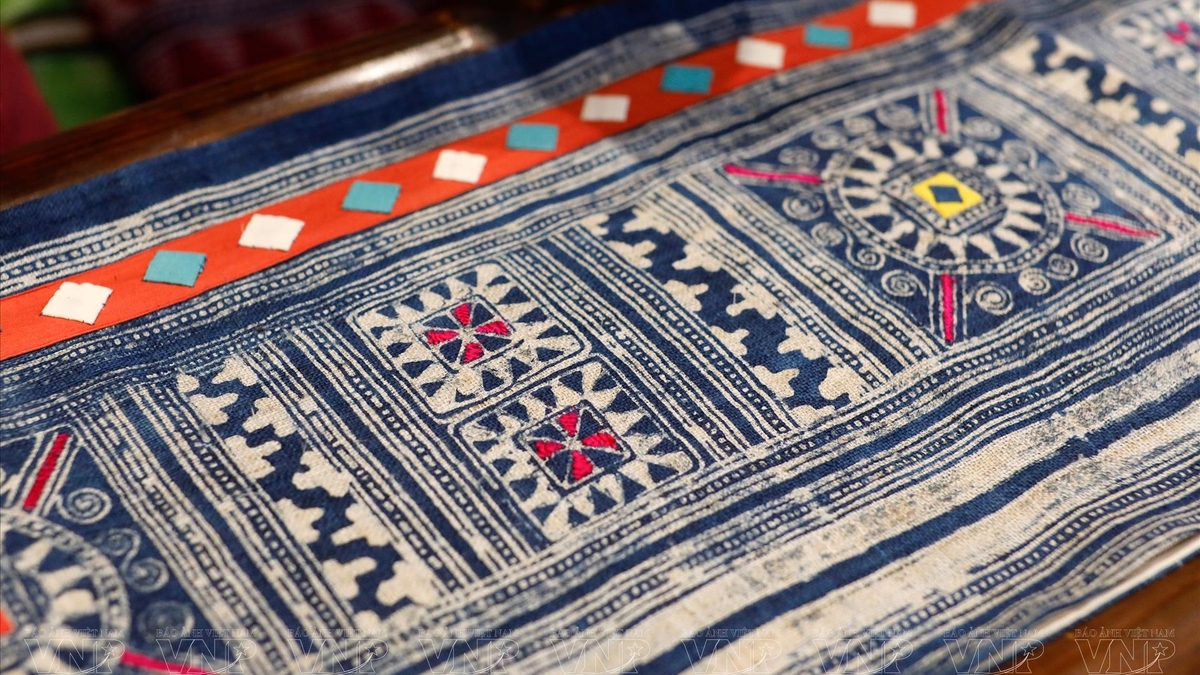


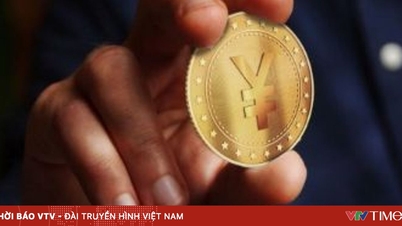




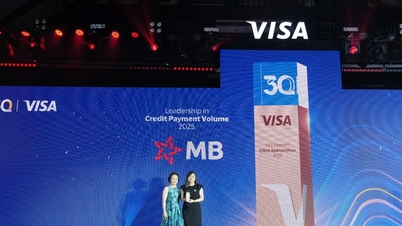





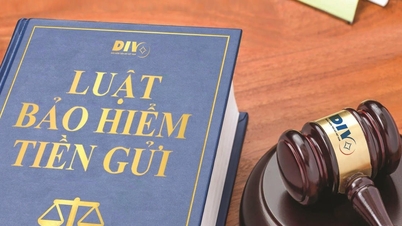



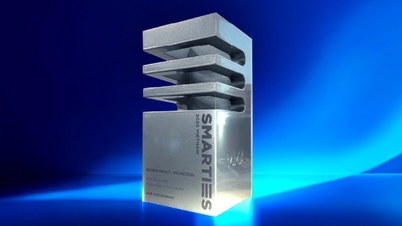


















































































Comment (0)